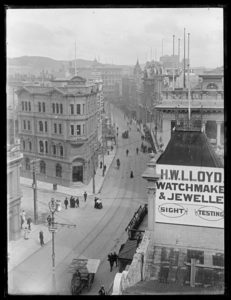At the library we have a monthly writers’ group called Writers Table. It’s a very small group, and we all come from very different writing backgrounds, including fiction, memoirs, and non-fiction. Two of us are published, the others aren’t. It’s a great opportunity to meet other writers and to discuss the craft, and build a small writing community. I’m lucky in that I get to be a part of it as part of my work at the library.
The latest meeting got onto the subject of research, so I put out there the adage of write what you know vs research, curious about their thoughts—especially the new writers—on the subject.
Interestingly, despite the old teaching of ‘write what you know’ the consensus amongst our group was yes, you can do that, but if you don’t know about something you want to write about, find out!
If everyone wrote what we know, 95% of fiction wouldn’t exist, including many of the genres I enjoy such as SF, fantasy, paranormal, and historical. However, in saying that it’s also important to find an authentic voice for characters who have a different background from yourself. In many instances this is where research comes in, and that includes taking the time to talk to people who do have experience in that area or are from a community from which you aren’t.
With the latter in mind, I know I need to take a leap and write more diverse characters in my stories. My latest series is set in New Zealand, but before I include a Māori character as I know very little about their culture, I am planning to sit down with a friend who is part Māori and we will work out the character together, so I can give him an authentic voice.
In some genres though you need to fall back on your imagination. Unfortunately I don’t know any vampires I can ask about their real life experiences! In doing so though, it doesn’t mean research goes out the window, as building a world means putting in the time to figure out what it looks like, and feels like, to live there. Consistency is key.
Luckily there are a lot of tools out there. I’ve written several stories set outside New Zealand, and used a combination of travel guides, physical maps, and google maps to make my settings as authentic as I can get them. Google maps is great to figure out how long it would take to get from one place to another. I remember watching a locally set TV program a few years ago and someone hopped on a bike at Newtown and five minutes later arrived in central Lower Hutt. The journey takes a LOT longer than that in reality.
I tend to research using a combination of physical and online resources, as I find it’s easier to work with a book for some of the information, and online for others. Also I have the advantage of working in a library so don’t have to go out of my way to search for books on whatever subject I’m researching. I had a lot of our WWII books piled up in my living room when I was writing my Echoes Rising series.

A database I’m loving at present is Papers Past which has digital copies of old online newspapers. Although one of my current WIPs is set in present day Wellington, there is a part of it that is linked to 1912. In order to anchor that part of the story, I had one of my MCs see a newspaper headline that would resonate with him. With it being 1912 the event that came to mind was the sinking of the Titanic. I searched Papers Past and found the headline and article in the local Evening Post paper for 16 April 1912. So when he sees a newspaper proclaiming ‘Shipping Disaster. Titanic Sinking,’ it is the exact headline that was published in that newspaper on that day.
I love research, especially when it feeds whatever I’m writing.
I’d love to hear your views on writing what you know vs research, and also do you have any favourite go-to databases etc you’d like to share.

[…] You can read the post here. […]